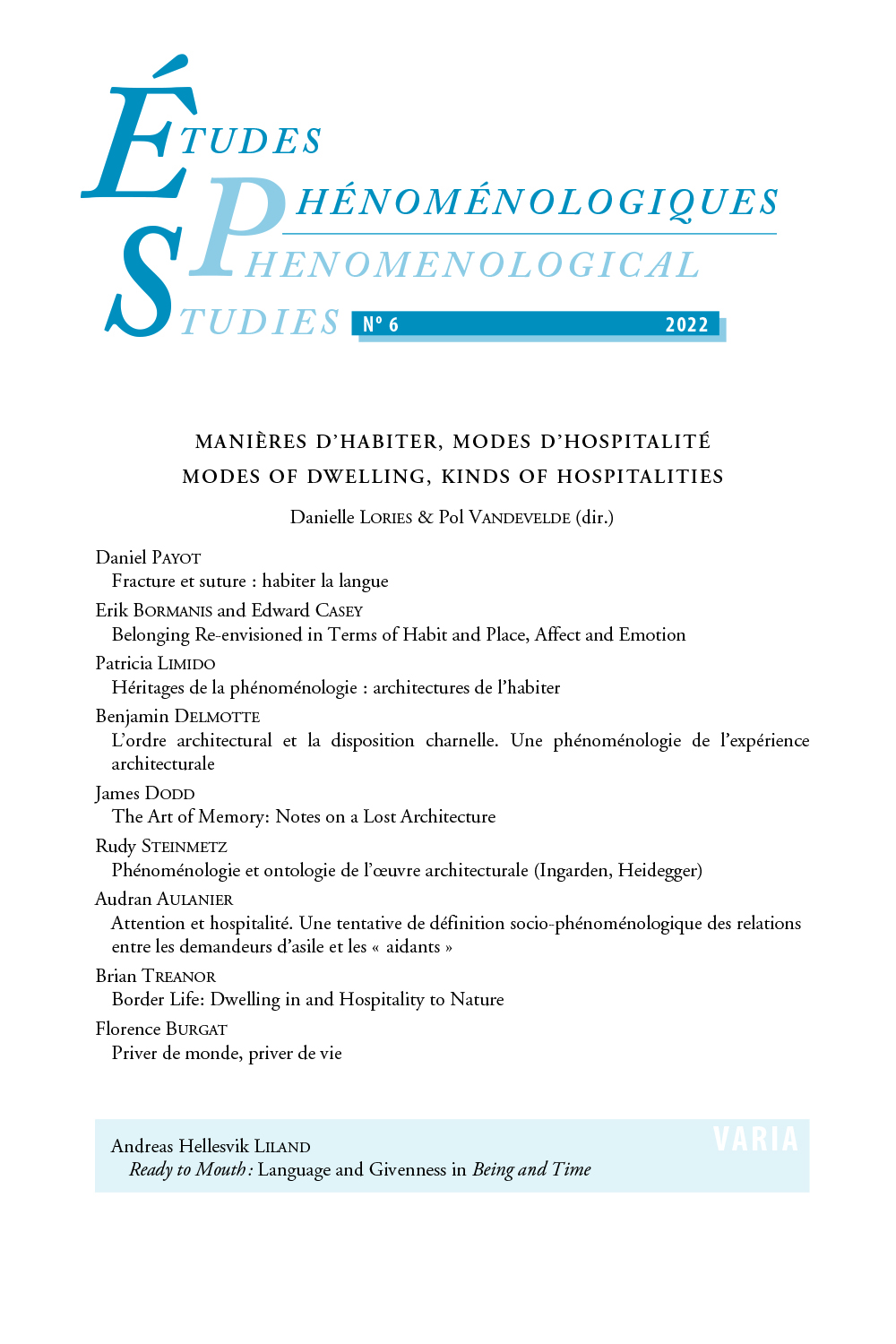 previous article in this issue previous article in this issue | next article in this issue  |

Preview first page |
Document Details : Title: Aletheia et ainsité Subtitle: La phénoménologie de la vacuité chez Nishitani Keiji Author(s): JELBY, Morten Engholm Journal: Etudes phénoménologiques - Phenomenological Studies Volume: 5 Date: 2021 Pages: 129-151 DOI: 10.2143/EPH.5.0.3288753 Abstract : The aim of this paper is to explore the contribution of Nishitani Keiji’s philosophy to phenomenology, focusing on the concepts of 'suchness' and 'emptiness'. Nishitani deals with 'suchness' as 'truth', inspired by the Heideggerian concept of aletheia, the unconcealment of Being as the foundation for the possibility of things to manifest themselves as they are. The problem of 'suchness' is thus a phenomenological problem in the strictest sense. Nishitani tries to radicalize the Heideggerian ontology through the concept of 'emptiness': the interpenetration of Being and Nothingness, or Being understood as internal negation. His goal is to overcome the dualisms of existence/essence, representation/substance, as well as world/subject. The dynamic unity of these dualisms constitutes 'suchness', i.e. the manifestation of the things in their authentic being. Suchness, however, is inaccessible from the standpoint of the 'I' or consciousness. Understanding the essence of religion as the standpoint of emptiness and of the non-self, Nishitani gives philosophy a religious turn back to the fundamental life. The paper offers an interpretation of Nishitani’s thought as an asubjective religious phenomenology, assessing the extent to which Nishitani’s concept of suchness allows for conceiving of a primordial phenomenality, autonomous with regard to the subject. |
|


